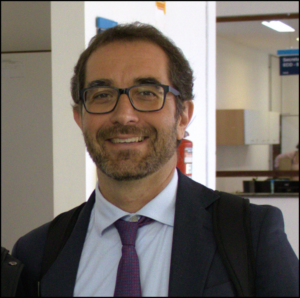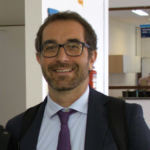Course
PhD
Area
Social Sciences
Department
Economics, Engineering, Business and Society
Duration
3 years
Language
Italian
The PhD program in “Economics, Management, and Quantitative Methods” offers an advanced training program in the economic, business, and mathematical-statistical areas for profiles capable of understanding the challenges facing today’s economy: the socio-environmental sustainability of economic development and the use of natural resources; the transformation of production, consumption, labor, and markets as a result of innovation. The PhD program brings together the knowledge of the College’s faculty in 3 curricula:
- Economics and Agri-food Policy: Specializing in the economic analysis of agri-food systems, the policies directed towards them, and their interdependencies with overall economic development at the global and local levels;
- Management: Specializing in the study of corporate governance and strategy, models of excellence for digital competition, environmental, ethical, and social responsibility of companies, technological innovation, digital transformation, new circular business models, and quality management;
- Economics and Statistics: Specializing in the study and analysis, through economic and statistical-econometric theories, models, and methods, of socio-economic and monetary-financial phenomena at the macro, meso, and microeconomic levels.
The three curricula are grounded in an interdisciplinary education focusing on cutting-edge economic theories and the shared use of quantitative methods as a tool for data analysis and interpretation, which is essential for conducting research and finding solutions to economic, business, and public policy problems.
PhD Coordinator: Prof. Giulio Guarini – giulioguarini@unitus.it
Objectives
The objective of the PhD program in Economics, Management, and Quantitative Methods is to equip doctoral students with the skills and knowledge necessary to conduct theoretical and applied economic research at universities, research institutes, and international organizations, as well as to hold managerial positions of responsibility in national and international public and private entities. To this end, the training program pays particular attention to the acquisition by doctoral students of theoretical tools and quantitative and qualitative analysis methodologies in the economic field.
From a training perspective, the specific objectives are: 1) to propose alternative thematic developments of particular relevance, which offer graduates the opportunity to apply the skills and analytical tools acquired to specific problems; 2) to provide doctoral students with the abilities, skills, and critical thinking necessary to adapt theoretical hypotheses and methodological approaches to different circumstances, also identifying original and innovative application methods; 3) to build a network of relationships within the doctoral program and the faculty, as well as externally with the academic world, businesses, public administrations, and international organizations to enhance the skills acquired in the job market.
Career opportunities
The PhD program aims to train highly skilled and specialized professionals who can fill managerial or executive roles in public institutions and businesses, or pursue research and teaching activities at universities and other national and international institutions.
With regard to career opportunities in the public sector and private industry, graduates of the PhD program will be able to:
- Provide consulting services to public institutions and international organizations in the formulation and evaluation of policies and intervention programs;
- Design and manage the development of territories and rural areas, and support the formulation of related economic policies;
- Prepare, evaluate, and monitor investment projects;
- Occupy roles as high-level analysts or directors and managerial positions in functions such as production, marketing, quality, and sales;
- Assist small and medium-sized enterprises in addressing the challenges of ecological transition and digital transformation.
Admission requirements
To participate in the competition, candidates must hold a specialized degree, or alternatively, a master’s degree, an old-regime degree, or an equivalent foreign academic qualification recognized as suitable for participation in the competition. Graduating students may also submit an application, provided that they undertake to complete their specialized/master’s degree examination, or obtain an equivalent foreign academic qualification by the following October.
Contacts and references
Coordinator
- Prof. Giulio Guarini (Università degli studi della Tuscia, DEIM)
email: giulioguarini@unitus.it
Vice-coordinator
- Prof.ssa Barbara Pancino (Università degli studi della Tuscia, DEIM)
email: bpancino@unitus.it
Curriculum advisor for Agricultural Economics and Policy
- Prof. Simone Severini (Università degli studi della Tuscia, DAFNE)
email: severini@unitus.it
Curriculum advisor for management
- Prof. Alessandro Ruggieri (Università degli studi della Tuscia, DEIM)
email: ruggieri@unitus.it
Curriculum advisor for economics and statistics
- Prof. Luca Secondi (Università degli studi della Tuscia, DEIM)
email: secondi@unitus.it
PhD student representative
- Dott.ssa Federica Martignani (Università degli studi della Tuscia, DEIM)
email: federica.martignani@unitus.it
Organizational staff
- Dott.ssa Chiara Grazini (Università degli studi della Tuscia, DEIM)
email: c.grazini@unitus.it
- Dott. Luigi Biagini (Università degli studi della Tuscia, DAFNE)
email: l.biagini@unitus.it
Administrative assistant
- Sig. Marco Passarelli (Università degli studi della Tuscia, DEIM)
email: marco.passarelli@unitus.it
Academic board and other bodies
Statutes
Call for applications
Call for applications and enrollment guidelines here.
Research Topics
Research Topics
The design and implementation of the training and research program for PhD students should take into account two crucial factors that significantly impact the PhD curriculum:
- the heterogeneity of PhD students’ backgrounds and the Master’s degree obtained;
- the organisation of the PhD course into three curricula:
- Economics and Agri-food Policy;
- Management;
- Economics and Statistics.
Economics and Agri-food Policy curriculum: it emphasises the economic analysis of agri-food systems, with a focus on the policies that influence this sector and on their interdependencies with overall economic development at both global and local levels. Scientific research in the agri-food sector aims to address strategic challenges facing our societies, such as food supply security and quality, land use governance, ecological transition, and rural area development.
Management curriculum: it aims to develop the theoretical and methodological skills necessary to understand and manage business phenomena and new challenges that companies face. It seeks to offer a multidisciplinary learning program related to managerial studies across different research areas, including corporate governance and strategy, models of excellence for global competition, corporate environmental, ethical, and social responsibility, technological innovation, digital transformation, new circular business models, and quality management.
Economics and Statistics curriculum: it specialises in the study and analysis of socio-economic and monetary-financial phenomena at macro, meso, and microeconomic levels, using theories, models, and economic and statistical-econometric methods. The topics addressed, which are relevant to academia as well as institutions, the productive system, and civil society, consider major contemporary economic challenges. Crucial issues include sustainable development in its various forms, social inclusion, and innovation, along with their policy implications.
Considering the wide range and heterogeneity of the research topics, doctoral training should be framed in personalised training and research programmes led by a supervisor. Each PhD student will be accompanied in his training and research by a supervisor who acts as advisor for the thesis.
After admission to the PhD course, the doctoral board assigns each candidate a supervisor and a research topic. The supervisor facilitates the PhD student’s integration into the program, oversees their scientific progress, and guides them in preparing their annual program of training and research activities as well as their thesis, ensuring the quality of their work. During the first year, personal annual programs are aimed at acquiring credits in Master’s-level courses for uncovered areas and at tailoring a schedule of advanced courses in subsequent years, either at the doctoral institution or at other institutions in Italy and abroad, to support the development of the research project leading to the final thesis.
Training activities
Trainings activities
At the beginning of each academic year, the PhD students, in agreement with their supervisor, propose the annual program of activities, divided into two sections: training activities and research activities. The program, signed by the supervisor, is submitted to the doctoral board for approval.
The training activities are structured into courses, seminars, internships, workshops, participation in research centres and laboratories both within and outside the Department, attendance of English language courses, training and teaching activities, and preparation of the PhD thesis.
The training activities are categorised: a) “institutional activities”, which are mandatory for all PhD students; b) “curricular activities”, which are mandatory only for PhD students enrolled in a specific curriculum; c) “optional activities,” not mandatory and suggested to them by the doctoral board, the organisational staff, or its members; d) “individual activities,” agreed upon with the supervisor and approved by the doctoral board as part of the PhD student’s annual activity program. Institutional and curricular activities are approved by the doctoral board or, in urgent cases, communicated to the PhD students by decision of the coordinator, subject to ratification by the board. Institutional or curricular activities include seminars and training courses offered by the PhD program and scheduled at the beginning of each academic year. Training activities may be conducted in collaboration with other PhD programs. Seminars are conducted by members of the doctoral board, national or international experts and academics, and practitioners from companies and organisations whose activities align with the PhD program’s objectives. Internships and training courses take place at public or private institutions, national or international research centres, and laboratories. The doctoral board selects training courses from those offered within the University of Tuscia or affiliated institutions. Specific courses are held at the PhD program’s location by members of the doctoral board, as well as national and international experts and academics. PhD students may contribute to the training program by conducting seminars on topics within their expertise, following an invitation from the coordinator, which is contingent upon the supervisor’s approval.
At the beginning of each academic year, the doctoral board organises seminars and courses structured in ECTS credits. The calendar is sent to PhD students and is available on the website. During the academic year, the programme may be modified in a non-substantial way by additional short courses and seminars conducted at both the doctoral school and other institutions.
In addition to the program of institutional and curricular courses mentioned above, the PhD students’ preparation will also focus on:
- Linguistics skills: PhD students will attend a B2-level course in written and spoken English, utilising the resources of the language services unit and/or other training activities provided by the University. The course aims to strengthen the students’ incoming linguistic skills. Additionally, training will be provided not only at a theoretical level but also practically to ensure that PhD students can effectively use scientific and economic English both orally and in writing.
- ITC skills: The training for PhD students to acquire ITC skills will cover two areas: i), seminars and courses to increase skills about tools and languages for statistical data analysis, such as Matlab, R, and Stata; ii) seminars to improve the skills for data visualisation, exploratory analysis, data processing and transformation, structured document writing, and managing the workflow of writing a scientific article.
Schedule of Training program for PhD students (Academic Year 2024/2025)
In the Academic Year 2024/2025, the doctoral board has planned the following training program:
- November 2024 – January 2025 – Course “Statistical and Econometric Analysis”(24 ore) – Dr. Ilaria Benedetti, benedetti@unitus.it (University of Tuscia, Viterbo):
November 11 (3 hours)
November 18 (3 hours)
November 25 (3 hours)
December 2 (3 hours)
December 9 (3 hours)
December 23 (3 hours)January 13, 2025 (3 hours)
January 14, 2025 (3 hours)
- November 2024 – June 2025 – Webinar on diversity and gender inequality – MinervaLab (Sapienza University of Rome)
- November 19, 2024 – Seminar “Testing the validity of the EKC hypothesis and moderating effects of renewable energy on environmental sustainability: A Panel estimation for the Western Balkans” (3 hours) – visiting professor Gungor Turan (Epoka University, Albania)
- November 21, 2024 – Course “Project Management” (4 hours) – Dr. Pier Luigi Guida
- December 3, 2024 – Seminar “Certification: evolution and opportunities, with special reference to the agrifood case” – dott. Enrico de Micheli (Chief Executive Officer di RINA AGRIFOOD)
- December 16, 2024 – WORKSHOP FOR PhD STUDENTS OF THE XXXVII CYCLE “Presentation of research projects”
- December 2024 – Course “Sustainability: One, No One, and One Hundred Thousand” (4 hours) – Prof. Silvio Franco, franco@unitus.it (University of Tuscia, Viterbo)
- January 2025 – Course “Issues of Local Development” (6 hours) – Prof. Giulio Guarini, giulioguarini@unitus.it (University of Tuscia, Viterbo)
- January 2025 – Course “Ethics in Research” (4 hours) – Prof. Alessandro Ruggieri, ruggieri@unitus.it (University of Tuscia, Viterbo)
- January – February 2025 – Course “Qualitative Research: Foundations and Methodologies” (12 hours) – Dr. Francesca Giare’, francesca.giare@crea.gov.it (CREA)
Lesson 1: Theoretical foundations and practical implications: the objective is to present the theoretical foundations of the qualitative approach and highlight the practical implications for research design
Lesson 2: Methods and tools for qualitative data collection
Lesson 3: Analysis of qualitative data (coding, thematic analysis, content analysis, reporting)
Lesson 4: Active research methodologies (an excursion from action research to an interactive approach to highlight potential and abuses of the qualitative approach)
- February 2025 – Course “The synergy between Quality and Sustainability in the preparation of Sustainability Reports” (4 hours) – Dr. Francesco Pacchera, francesco.pacchera@unitus.it (University of Tuscia, Viterbo)
- February – March 2025 – Course “Enviromental law” (6 hours) – Dr. Mattia Pellegrini (Head of Unit DG ENV, European Commission) and Dr. Angelo Salsi (Head of “Life Nature” Unit, European Commission)
- March – April 2025 – Course “Applications of Microeconometrics for the Agri-food Economy” (48 hours) – Prof. Luigi Cembalo (University of Naples Federico II)
- March – April 2025 – Course “Introduction to Financial Innovation” (24 hours) – Prof. Anna Maria D’Arcangelis, adarcangelis@unitus.it (University of Tuscia, Viterbo), Prof. Giuseppe Galloppo, galloppo@unitus.it (University of Tuscia, Viterbo) and Dr. Alessandra Ortolano, alessandra.ortolano@unitus.it (University of Tuscia, Viterbo)
- March – May 2025 – Course “Technological monetary evolution” (9 hours) – Prof. Chiara Oldani, coldani@unitus.it (University of Tuscia, Viterbo)
- April – May 2025 – Course “Food systems sustainability: policies, tools and actions” (16 hours) – Barbara Pancino, bpancino@unitus.it(University of Tuscia, Viterbo), Prof. Clara Cicatiello, cicatiello@unitus.it (University of Tuscia, Viterbo), Prof. Luca Secondi, secondi@unitus.it (University of Tuscia, Viterbo) and Dr. Ludovica Principato (University of Roma Tre)
- April – May 2025 – Course“Econometrics applied to agri-food contexts” (48 hours) – Prof. Francesco Caracciolo (University of Naples Federico II)
- May 2025 – Course “Ancient Issues Relevant to Modern Times (History of Thought and Economic Theories)” (5 hours) – Prof. Alessandro Roncaglia (Sapienza University of Rome)
- May – June 2025 – Course “Mathematical programming for ex-ante analysis in agricultural economics and policy” (12 hours) – Prof. Raffaele Cortigniani, cortignani@unitus.it (University of Tuscia, Viterbo)
- June 2025 – Course “Soft Skills (paper, review process, presentations)” (6 hours) – Prof. Simone Severini, severini@unitus.it (University of Tuscia, Viterbo)
- June – July 2025 – Course “Sustainable development: economics, environment and innovation” (10 hours) – Dr. Chiara Grazini, grazini@unitus.it (University of Tuscia, Viterbo)
- September 2025 – Course “Introduction to accounting” (4 hours) – Prof. Vincenzo Sforza, sforza@unitus.it (University of Tuscia, Viterbo)
- September 2025 – Course “Sustainability reporting and assurance profiles” (12 hours) – Alessandra Stefanoni, stefanoniale@unitus.it(University of Tuscia, Viterbo), Dr. Fabrizio Rossi, fabrizio.rossi@unitus.it (University of Tuscia, Viterbo) e Dr. Ilaria Elisa Vannini (Università di Firenze)
- September – October 2025 – Course “Introduction to Machine Learning with applications” (18 hours) – Dr. Luigi Biagini, biagini@unitus.it (University of Tuscia, Viterbo)
Calendari degli anni precedenti
Schedule of Training program (Academic Year 2018/2019)
Schedule of Training program (Academic Year 2019/2020)
Schedule of Training program (Academic Year 2020/2021)
Schedule of Training program (Academic Year 2021/2022)
Schedule of Training program (Academic Year 2022/2023)
Schedule of Training program (Academic Year 2023/2024)
Internationalisation
Foreign Academics
The doctoral board is integrated by foreign academics:
- OREIRO José Luis (University of Brasilia, Brasil)
- SÆBØ Øystein (University of Agder, Norway)
- THOMPSON Gary (University of Arizona, US)
The presence of high international profiles allows one to keep pace with international research trends, tools and innovations. At the same time, this presence ensures and facilitates comparisons with PhD programs at foreign universities.
Courses and seminars conducted by foreign academics
The PhD program offers advanced courses and seminars conducted by members of high academic profiles from leading international universities.
In the academic year 2023/2024, the following courses and seminars were conducted:
- Courses
- “Machine Learning: new tricks for econometrics” (28 hours) – Prof. Gary Thompson (University of Arizona, US) (Poster)
- Seminars
- “Quality of Life (QOL) in Visegrad Group (V4) countries” – visiting professor Anna Dybala (Jan Kochanowski University of Kielce, Poland) – February 12, 2024
- “Enhancing Efficiency and Productivity Methods for Ph.D. Students” – visiting professor Alisa Lāce (College of Business Administration di Riga, Latvia) – April 12, 2024
- “Fundamentals of data science with R” – visiting professors Jose-Maria Montero and Gema Fernandez-Aviles Calderon (Universidad de Castilla-La Mancha, Spain) – April 16, 2024
- “A multidisciplinary perspective on the science and practice of management: organisational management, management of tourism services and quality of life management” – visiting professors Norina Popovici and Dorinela Mancu (Ovidius University of Constanta, Romania) – April 19, 2024
- “Selected effects of direct foreign investment and their evaluation and measurement possibilities within the regional business environment” – visiting professor Sylvie B. Kotíková (Jan Evangelista Purkyně University, Czech Republic) – May 15, 2024
- “Methodological problems of contemporary economics – challenges and dilemmas” – visiting professor Beata Rogowska (Jan Kochanowski University at Kielce, Poland) – May 16, 2024
- “Analysis of the psychological aspects of financial decision-making” – visiting professor Angelika Pienias (Jan Kochanowski University at Kielce, Poland) – May 16, 2024
- “Agriculture and food-security related issues at the multilateral trading system” – visiting professor Sofia Boza (Ambassador, Permanent Representative of Chile to the WTO) – May 27, 2024
- “Characteristics of small-scale farming in LATAM: the case of the central area of Chile” – visiting professor Sofia Boza (Ambassador, Permanent Representative of Chile to the WTO) – May 27, 2024
- “Application of psychometric tools in business practice on the example of Mental Toughness Questionnaire” – visiting professor Małgorzata Smolska (University of Szczecin, Poland) – June 17, 2024
- “Return policy of the European Union with special emphasis on the activities of the FRONTEX agency” – visiting professor Aleksandra Kusztal (Uniwersytet Jana Kochanowskiego w Kielcach, Poland) – October 24, 2024
Visiting and Mobility
Language skills and ability to operate effectively in the international research context are fundamental skills for a researcher. Therefore, each student must complete a mandatory research period of at least six months at a foreign institution. The duration of this period, the institution(s) where the research activities will take place, and the specific activities to be undertaken must be agreed upon with the supervisor and the coordinator or the doctoral board.
For the areas of interest of the PhD program, relationships are active with the following institutions:
- Albania
- University of Tirana
- International Academic Research Center USC
- Mediterranean University of Albania
- Agricultural University of Tirana
- Armenia
- International Scientific-Educational Center of NAS RA
- Azerbaijan
- Baku Business University
- Azerbaijan University
- Brazil
- University of Campinas
- China
- China Agricultural University
- France
- Université Côte d’Azur
- Ghana
- Simon Diedong Dombo University of Business and Integrated Development Studies
- Methodist University College
- Israel
- Ben-Gurion University of the Negev
- The Jerusalem College of Technology
- Mexico
- Universidad de Guadalajara
- Nepal
- Mid-Western University
- Slovakia
- University of Economics in Bratislava
- Russia
- Ural Federal University
- State University – Higher School of Economics in Nizhny Novgorod
- Russian New University
- Russian State University for the Humanities
- International Jewish Institute of Economics Law and Finance
- National Research University Higher School of Economics HSE
- Serbia
- Educons University
- Tunisia
- The University of Sfax
- Stati Uniti d’America
- The University of Massachusetts Amherst
- Viterbo University
- University of Baltimore
- University of Arizona
Collaboration with Foreign Universities – “Sandwich” PhD program
The “sandwich” PhD program is open to students from universities and research institutions within an agreement signed with UNITUS. Each year, based on the availability of funds provided by UNITUS academics, one or more positions may be advertised for qualified researchers. The term “sandwich” refers to the requirement that selected candidates must spend at least 12 months of the three-year program in Italy (potentially divided into two or three periods, preferably in the second and third years) while the remaining activities are conducted remotely. During their time in Italy, PhD students will receive a monthly allowance to cover part of their accommodation and living expenses.
Currently, the University of Tuscia has signed agreements with Hanoi University (Vietnam) and the University of Sfax (Tunisia).
Minimum annual requirements and allocation of training ETCS credits
The activity conducted by the PhD students is evaluated each year through a training and research credit system established by the doctoral board. With different thresholds depending on the year of the doctoral course attended, the student is required to overcome a minimum target of credits.
The doctoral board, on March 21, 2022, established, according to the article 10 of the Internal Regulations of the PhD course in Economics, Management, and Quantitative Methods, these minimum requirements:
- To be admitted to the second year, PhD students must obtain at least 40 credits during their first year, including a minimum of 4 credits in research activities.
- To be admitted to the third year, PhD students must obtain at least 80 credits during their first two years, including a minimum of 14 credits in research activities.
- To be admitted to the third year, PhD students must obtain at least 180 credits over the three years, including a minimum of 84 credits in research activities.
PhD Students
Cycle XXXIX
CECCARELLI Valentina
Sustainable human development and energy transition
Supervisor: Giulio Guarini – Tiziana LauretiDELUSSU Anna Maria
Development and implementation of innovative methodologies and solutions for sustainable and circular ports
Supervisor: Enrico Maria Mosconi – Cristian Chiavetta – Roberta De CarolisEL BAYAR Mariam
Behavioural study of connectedness and spill-over among fintech, green bonds and commodities during crisis
Supervisor: Giuseppe Galloppo – Mouna BoujelbèneMONTINI Fiore
Industrial symbiosis in ports’ industrial areas
Supervisor: Enrico Maria Mosconi – R. De CarolisGIOVANNELLI Maria Chiara
The start-up and development phases of the proposed candidacy of Viterbo as the European Capital of Culture 2033
Supervisor: Chiara OldaniSPADANUDA Giusy
Policies against illegal work and caporalato: effects on the agricultural sector and complementarity with the CAP 2023-2027
Supervisor: Francesca Giarè – Luca CacchiarelliSTELLA Mattia
From the Farm Accountability Data Network (FADN) to the Farm Sustainability Data Network (FSDN). Voluntary market analysis of carbon credits derived from Carbon-farming practices, credit register and proposals for C-farming credit certification methodologies
Supervisor: Luca Cesaro – Luigi BiaginiTHI NGUYET Trang
Circular economy and resource efficiency: Innovations in food packaging and distribution
Supervisor: Simone Severini – Luigi BiaginiCycle XXXVIII
BRUNO Alessandro Lanfranco
Circularity in the construction industry. A waste management model from C&D
Supervisor: Alessandro Ruggieri – Stefano PoponiCORRADO Angela
Accounting innovation, organisational change and strengthening governance in public administrations in the light of the single accrual-based economic and wealth accounting system: a possible challenge?
Supervisor: Vincenzo SforzaGIORDANI Giorgia
“Why do farmers fail to comply with the employment standards of the Social Conditionality?” – Identification and classification of the reasons underlying the choice of Italian farmers to adhere or not to the employment standards provided for by the new social conditionality, introduced with the CAP 2023-2027
Supervisor: Francesca Giarè – Simone SeveriniMATACERA Alessio
Best practice, principles, and methods to develop Information system models for the Management of environmental aspects and sustainability reports for organizations by the study of Mondoconvenienza
Supervisor: Enrico Maria MosconiPIETRANGELI Francesca
To evaluate the efficiency of local policies for the ecological transition and the economic development of marginal areas
Supervisor: Barbara Pancino – Silvio FrancoPOMPONI Tommaso
Complementarities, synergies and management models of public policies for ecological transition with special reference to the agro-food sector
Supervisor: Roberto Henke – Alessandro SorrentinoROMANO Sara
Sustainability of cocoa production in Ghana
Supervisor: Anna Carbone- Federica DemariaSTURLA Alberto
Assessment of the potential contribution of bio-districts to local and farm development
Supervisor: Giulio Guarini – Laura ViganòTAMBORRINO Camilla
The experimental approach for the evaluation of Producer Organisations (POs) in the olive sector
Supervisor: Luca Cacchiarelli – Alessandro Sorrentino – Roberto HenkeTARANTINO Maria Rita
European strategies for packaging in the transition to a circular economy: innovation, production, and consumption in the value chain
Supervisor: Enrico Maria MosconiYU Mengting
Evaluation of Innovations to Tackle Food Waste in the Food Service Sector with a focus on the out-of-home dining sector: statistical approaches and quantitative methods for data mining
Supervisor: Clara Cicatiello – Luca SecondiCycle XXXVII
ANGELONI Annalisa
Biofertilizers, circular economy and the short supply chain in rural communities. A comparison between the case of Friuli-Venezia Giulia (Italy) and that of Flanders (Belgium)
Supervisor: Cecilia Silvestri – Federica CisilinoBIAGETTI Elisa
The ecological balance in agriculture: opportunities and constraints for Economic exploitation of environmental performance in the agri-food sector
Supervisor: Silvio FrancoGALEOTTI Sofia
THE ROLE OF ITALIAN LAWMs IN THE MITIGATION AND ADAPTATION PROCESS TO CLIMATE CHANGE: AN ANALYSIS FOR FUTURE ENVIRONMENTAL POLICIES
Supervisor: Raffaella Zucaro – Luca CacchiarelliMARTIGNANI Federica
Exploring Italian farmers’ participation in eco-schemes: a discrete choice experiment
Supervisor: Alessandro SorrentinoPIETRANGELI Roberta
Sustainability and actors of the agri-food chain, food loss and waste (FLW) and quality standards, unfair practices that occur among actors of the agri-food chain
Supervisor: Clara CicatielloPROVENZANO Mariagrazia
Exploitation of the olive-oil sector waste: a new circular business model
Supervisor: Alessandro RuggieriRICCIARDI Gabriella
Exploitation of sustainable spatial development models through European rural development policies
Supervisor: Anna Carbone – Raffaella Di NapoliTOLA Francesco
Green markets, circular economy for shipbuilding and ship dismantling industry
Supervisor: Enrico Maria MosconiCycle XXXVI
BASSET Francesco
Methodological approaches to evaluating the impacts of Social Farming
Supervisor: Saverio Senni – Francesca GiarèBUTTINELLI Rebecca
Assessing The Economic Relevance and Productivity of Agricultural Inputs in Italian Farms Through Quantitative Analyses
Supervisor: Raffaele Cortignani – Gabriele DonoCAGNETTI Chiara
The development of Agriculture 4.0 in Italy: an empirical analysis of the factors of adoption of digital technologies in the agricultural sector
Supervisor: Alessio Maria Braccini – Luca CesaroFORCINA Barbara
Governance and transition challenges in localised agri-food systems: the cases of processing tomato supply chains in Spain and Italy
Supervisor: Luca Cacchiarelli – Francesco MantinoMAGGIORANI Marco
The quality of financial reporting and statutory audit in public and private administrations
Supervisor: Vincenzo Sforza – Riccardo CiminiMAZZOLI Enrico
Different Shades of Green: Unveiling Opportunities and Challenges of Green Growth Solutions in Developing Countries
Supervisor: Giacomo Branca – Paolo D’OdoricoPINCA Vittoria
The Role of Neglected and Underutilized Species in Building the Resilience of Poor Mountain Communities. Two Case Studies from Western Nepal
Supervisor: Simone Severini – Sara Savastano (IFAD)
Alumni
Cycle XXXV
MALUCCIO Saverio
The voluntary market for forest carbon credits: an analysis of the Italian market
Supervisor: Simone Severini – Luca Cesaro
Email: saverio.maluccio@crea.gov.itMELONI Cesare
Does an income gap exist between rural and non-rural households in Europe?
Supervisor: Simone Severini
Email: melonicesare94@gmail.comNATALI Fabiana
The economic policy of sustainable production and consumption: case studies on fishery resources from the Mediterranean Sea
Supervisor: Giacomo Branca
Email: fabiana.natali@libero.itPACCHERA Francesco
A Circular Tool for the relaunch of the agri-food sector
Supervisor: Alessandro Ruggieri
Email: francesco.pacchera@unitus.itPIERANGELI Fabio
AN ASSESSMENT OF THE REDISTRIBUTIVE IMPACT OF THE REFORM OF DIRECT PAYMENTS IN ITALY IN 2026
Supervisor: Alessandro Sorrentino – Maria Rosaria Pupo D’Andrea
Email: fabio.pierangeli@crea.gov.itSPASIANO Andrea
Citizens and stakeholders’ engagement for monitoring and awareness of hydrological cycle
Supervisor: Alessio Maria Braccini – Salvatore Grimaldi
Email: and.spasiano@gmail.comPALUMBO Luigi
Web scraping data for socio-economic research
Supervisor: Tiziana Laureti
Email: luigi.palumbo@unitus.itCycle XXXIV
FORTUNATI Simona
From CSR to the circular economy in the cosmetics industry
Supervisor: Alessandro Ruggieri – Enrico Maria Mosconi
Email: simonafortunati@unitus.itGALLUZZO Nicola
Agri-environmental measures and technical efficiency: a multidimensional analysis on Italian cereal farms
Supervisor: Simone SeveriniGRAZINI Chiara
Energy poverty as a capability deprivation: Empirical evidence for Italian households
Supervisor: Giuseppe Garofalo – Giulio Guarini
Email: c.grazini@unitus.itLAI Mara
Development of the club supply chains in the fruit sector: governance and organisation, farmers’ participation and risk of unfair practices
Supervisor: Alessandro Sorrentino – Gaetana Petriccione
Email: mara.lai@crea.gov.it / maralairrn@gmail.comMANGANIELLO Veronica
Water resources in the circular economy: the reuse of purified wastewater between potentialities and limits
Supervisor: Gabriele Dono – Raffaella Zucaro
Email: veronica.manganiello@gmail.comMONFELI Giorgio
Analysis of the intensification processes in agricultural production: the case of the conversion from annual to multi-annual crops in northern Lazio
Supervisor: Simone Severini
Email: g.monfeli@unitus.itROSSI Eleonora Sofia
Investigating social preferences on the agri-food environmental sustainability: an assessment based on stated preference methods
Supervisor: Alessandro Sorrentino – Emanuele Blasi
Email: e.s.rossi@unitus.itTRAVERSO Lorenzo
Sustainable Bioenergy Production on Underutilized lands in Europe: An Economic Perspective
Supervisor: Giacomo Branca
Email: ltraverso@unitus.itRUBERTO Myriam
Analysis of the intensification processes in agricultural production: the case of the conversion from annual to multi-annual crops in northern Lazio
Supervisor: Giacomo Branca – Raffaella Zucaro
Email: myriam.ruberto@unitus.it




